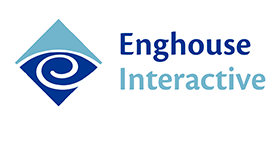As Microsoft Teams becomes a core part of the contact centre, organisations must find a way to integrate all of their existing functionality into the platform. Call recording is an essential part of this, providing compliance and quality assurance.
However there are multiple approaches to call recording within Teams. So how should you go about ensuring this key piece of contact centre infrastructure is successfully integrated in a way that allows you to use it effectively, securely and delivers real business value?
The Benefits of Call Recording
Today, having the ability to record calls is vital for every contact centre. In regulated industries, for example, call recording technology is essential, supporting compliance with regulations such as FCA and MiFID II, as well as enabling smoother dispute resolution by recording everything that has been said in a call.
Quality assurance is improved because supervisors can monitor script adherence from agents. And managers can analyse recordings to identify where additional training or support is needed.
In fact, call recording’s uses are increasing. Many forward-looking contact centres, are now analysing call recordings as part of their Voice of the Customer initiatives. Delivering insights that drive improvements in their products and services.
Two Approaches in Teams
For compliance, the approach you use to integrate call recording into Teams is going to be based on how you connect the platform to the traditional public telecoms network (PSTN. There are two options available:
Direct Routing
This is usually used by larger organisations who choose their own carrier for calls, normally as part of their wider telecoms procurement and management. In this case your call recording solution is integrated with a Session Border Controller (SBC) that acts as the link between Teams and the PSTN network.
This regulates, protects and controls the comms flow between Teams and the external carrier. The call recording solution itself can be hosted on-premise or in the cloud.
Microsoft Calling Plan
Essentially Microsoft acts as the carrier for PSTN calls, providing the service and calling plan. Compliance recordings are actioned through Teams using a third-party recorder hosted within the Microsoft Azure cloud.
Recordings are usually stored in Azure, although they can be accessed by external systems for compliance or analysis.
Checklist: How to Pick the Right Solution for Your Needs
Given the importance of call recording and the accelerating use of Teams, organisations need to be sure they select the right technology solution and partner for their needs. Whether they use Direct Routing or the Microsoft Calling Plan approach.
Here are the must-have capabilities to tick off your list for your chosen solution/partner:
- Powerful analytics to unlock the full value in the recording. The right analytics can deliver deep business benefits, for example helping pinpoint agent training needs and providing rich customer insight. Look for a solution that uses machine learning and automation for scale and speed.
- The ability for real-time monitoring. This allows supervisors to directly intervene in live calls. Either through Teams IM or voice, for example if agents are struggling or not following a compliance script. Advanced real-time monitoring can also now provide automated coaching, listening to the call and automatically prompting agents to ensure they cover off all the information required for compliance.
- Always-on call recording functionality which is highly available and can easily handle activity peaks, whenever they occur.
- A high level of security and compliance, supporting security and compliance policies, such as around how long you retain and protect recordings.
- Native integration with the Microsoft Graph API and a Microsoft-compatible Session Border Controller.
- An established, experienced Microsoft partner with proven contact centre experience, that is actively developing solutions to meet your changing needs.
This blog post has been re-published by kind permission of Enghouse Interactive – View the Original Article
For more information about Enghouse Interactive - visit the Enghouse Interactive Website
Call Centre Helper is not responsible for the content of these guest blog posts. The opinions expressed in this article are those of the author, and do not necessarily reflect those of Call Centre Helper.
Author: Enghouse Interactive
Published On: 12th Nov 2021
Read more about - Guest Blogs, Enghouse Interactive






 Enghouse Interactive delivers technology and expertise to help bring your customers closer to your business through its wide range of customer contact solutions.
Enghouse Interactive delivers technology and expertise to help bring your customers closer to your business through its wide range of customer contact solutions. 



























